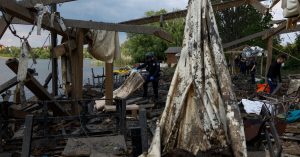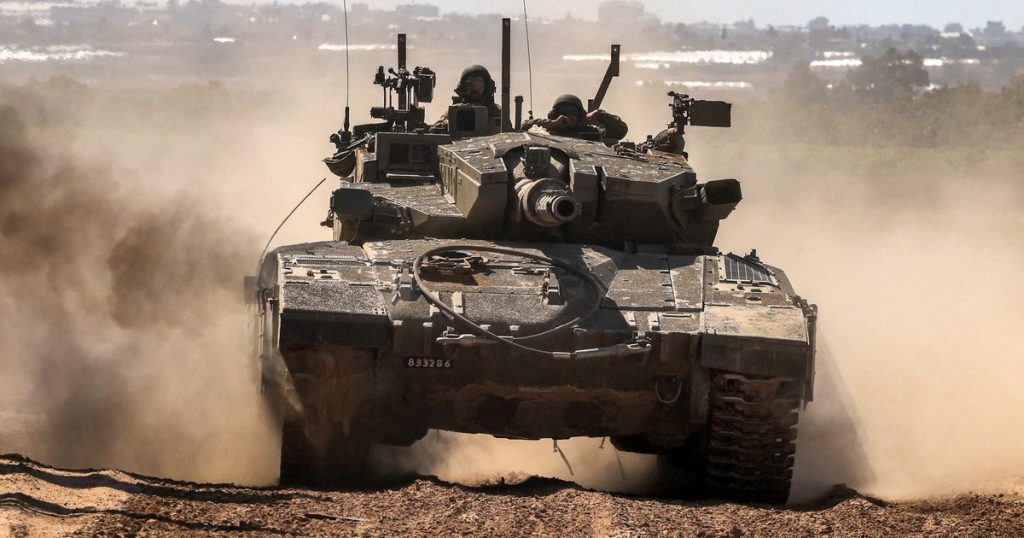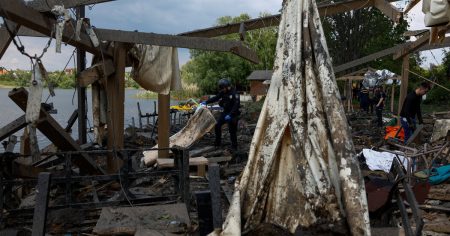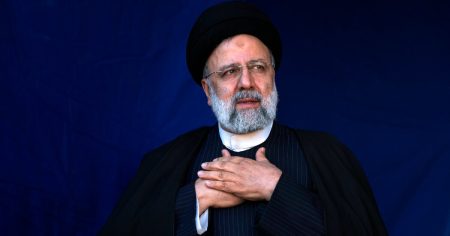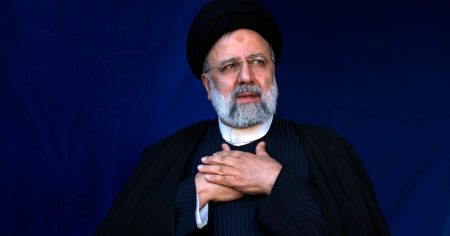The Israeli tank brigade seized control of Gaza’s Rafah border crossing, ignoring warnings from allies and launching an incursion into the southern city amid cease-fire negotiations with Hamas. The move raised concerns of a collapse in aid to Palestinians, especially in northern Gaza, which is facing famine conditions. This incursion follows Hamas accepting an Egyptian-Qatari mediated cease-fire proposal, which Israel rejected, prolonging the conflict that has claimed over 34,700 Palestinian lives and devastated Gaza.
By capturing Rafah, Israel now controls the entry and exit of people and goods into Gaza for the first time since withdrawing in 2005, despite maintaining a blockade in cooperation with Egypt. The incursion into Rafah was seen as a pressure tactic in the cease-fire talks by Prime Minister Benjamin Netanyahu, who views dismantling Hamas’ military capabilities as crucial. The fighting has led to the evacuation of critical medical centers in Rafah, further worsening the humanitarian crisis in the region.
The U.S. expressed concern over the fate of over 1.3 million Palestinians affected by the conflict, warning Netanyahu against launching an invasion of Rafah. However, Netanyahu’s coalition partners threaten to bring down the government if he makes too many concessions in the talks. Families in Rafah are now fleeing the city, fearing further Israeli strikes and uncertain about the future. The hostages held by Hamas are caught in the crossfire of diplomatic negotiations, with families criticizing the government’s inaction in securing their release.
The seizure of the Rafah crossing by Israel has been condemned by Egypt, fearing a dangerous escalation that could threaten the 1979 peace treaty with Israel. The sealing of the crossings at Rafah and Kerem Shalom has cut off vital supplies to Gaza, putting millions of lives at risk. Israel claims intelligence that the crossing was being used for terrorist purposes, although evidence was not immediately provided. The death toll from the overnight strikes in Rafah has risen to at least 23 Palestinians, including women and children.
Efforts by the U.S., Egypt, and Qatar to broker a cease-fire and secure the release of hostages have been met with opposition from Israel, which aims to dismantle Hamas entirely. The demands for a full withdrawal from Gaza and an end to the war remain unresolved, with the hostages becoming a bargaining chip and potential human shields for Hamas. Despite the rejection of the initial cease-fire proposal by Israel, negotiations are expected to continue in Cairo with the presence of Hamas and Qatari delegations.
The proposed cease-fire outlines a phased release of hostages, coupled with the withdrawal of Israeli troops from Gaza, leading to a sustainable calm. The involvement of CIA chief William Burns and regional officials in the negotiations signals a potential breakthrough in ending the conflict that has ravaged Gaza. As the situation remains precarious, the international community closely monitors the developments in Gaza to prevent further bloodshed and ensure the well-being of the civilian population.


